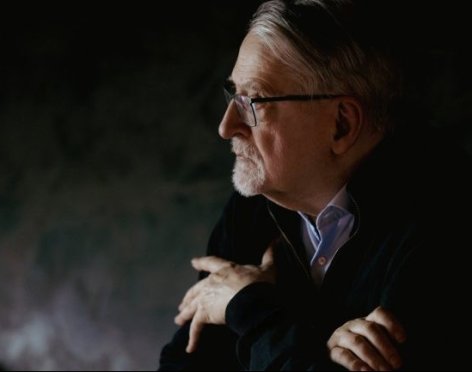Mozart/Orbán/Mahler
Müpa & PFZ
György Orbán: Symphony No. 2 – World Premiere
Gustav Mahler: Symphony No. 4
"As with people, certain individual artistic genres prove to be great survivors among their kind. The key in both cases is the capacity for renewal. The eternally youthful veteran of musical genres, with more than a quarter of a millennium of history behind it, is the symphony. This concert by the Pannon Philharmonic playing under the baton of Gergely Kesselyák offers a chance to hear three different symphonies: one from the 18th century, another from the turn of the 19th and 20th centuries, and between the two, the world premiere of a new work by Müpa Budapest's Composer of the Season, György Orbán.
Mozart's symphony bearing the number 183 in the Köchel catalogue was dubbed the ‘Little G minor' in order to distinguish it from the ‘Great G minor' (K. 550), the middle member of the trio of late symphonies, which reflects a troubled state of mind. The ‘little' G minor lacks none of this unsettled tone either, as this magnificent piece composed in 1773 is an example of the pre-Romantic Sturm und Drang trend. Mahler's Fourth Symphony includes numerous playful, childlike elements. For example, the soprano soloist's finale relates what life is like in heaven by adapting a text from the folk poetry collection Des Knaben Wunderhorn (The Boy's Magic Horn). Featured between Mozart and Mahler is a new work: György Orbán's Symphony No. 2, which despite being the most recent of the three compositions on the programme for the evening, also fits into a spot between Mozart and Mahler from a stylistic point of view as well. Classically structured and scored, the four-movement work employs references to folk songs, sophisticated harmonic techniques, powerful sonorous climaxes and sensitively arcing melodies. The 200-year-old Pannon Philharmonic has been operating as a professional orchestra since 1984, and conducting this concert is the extremely popular and versatile Gergely Kesselyák, who has brought a unique colour and fresh energy to the Hungarian concert scene since the '90s.
The concert will be preceded from 6.30 pm by an introductory presentation in Hungarian entitled Prologue, by musicologist Gergely Fazekas, where concert ticket holders will be invited to get to know the performing musicians and the works to be performed more closely."
Presented by: Müpa Budapest

Born in Transylvania, but living in Hungary since 1979, György Orbán (1947), Müpa Budapest's composer of the 2023/2024 season, is an outstanding figure of Hungarian contemporary music, who has always strived for unambiguousness in his works, with a special affinity to vocal genres.
György Orbán (born 12 July 1947 in Târgu Mureș, Romania) is a Romanian-born Hungarian composer. Orbán studied then taught at the Cluj-Napoca Academy of Music until 1979 when he emigrated from Romania to Hungary, becoming professor of composition at the Liszt Academy of Music, Budapest, in 1982. His choral music mixes traditional liturgical renaissance and baroque counterpoint with intrusions from jazz.
Bartók–Pásztory Prize (1991)
Erkel Ferenc Prize (2002)
Artisjus Prize(2005)
Kossuth Prize (2014)
Composer of the year Müpa - György Orbán / Photo Szilvia Csibi / Müpa

7622 Pécs,
Breuer Marcell sétány 4.
jegypenztar@pfz.hu
+36-72-500-300
Opening hours:
Mon–Thu: 10.00–6.00 pm
Fri: 10.00–6.00 pm
Sa–Su: only on performance days, open from 90 minutes before the performance start time

7622 Pécs,
Breuer Marcell sétány 4.